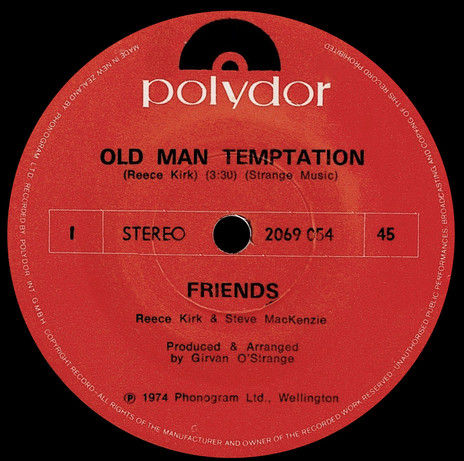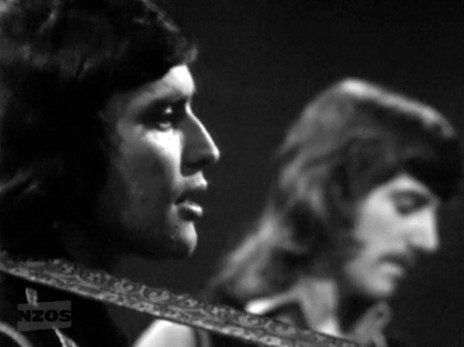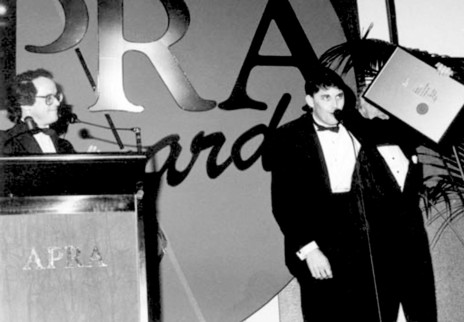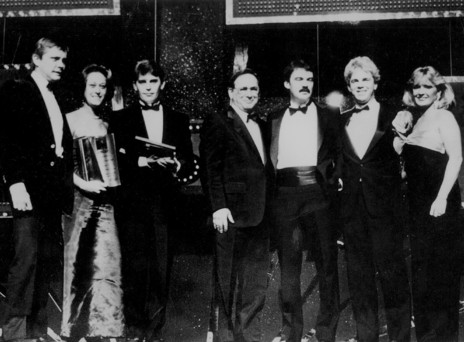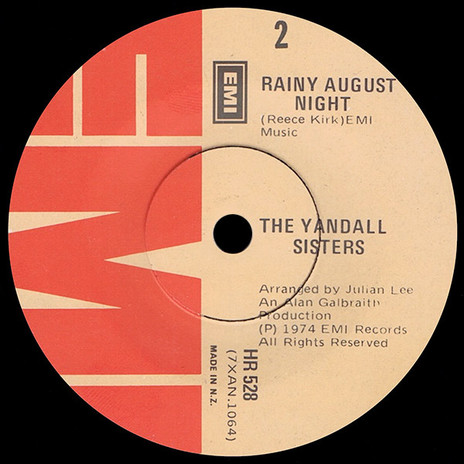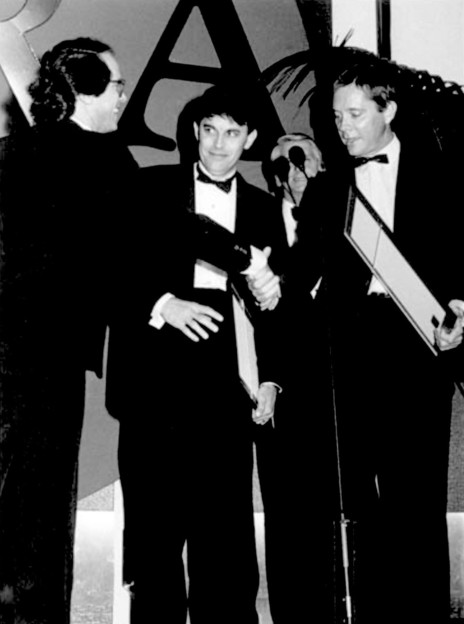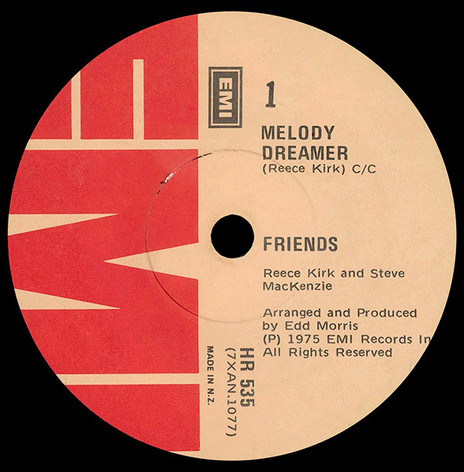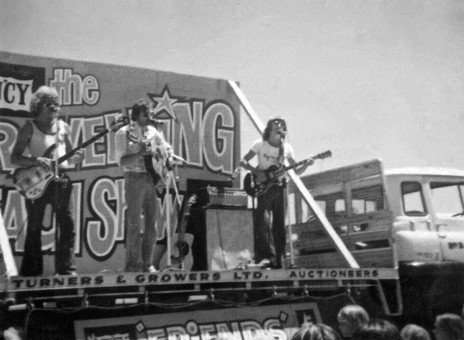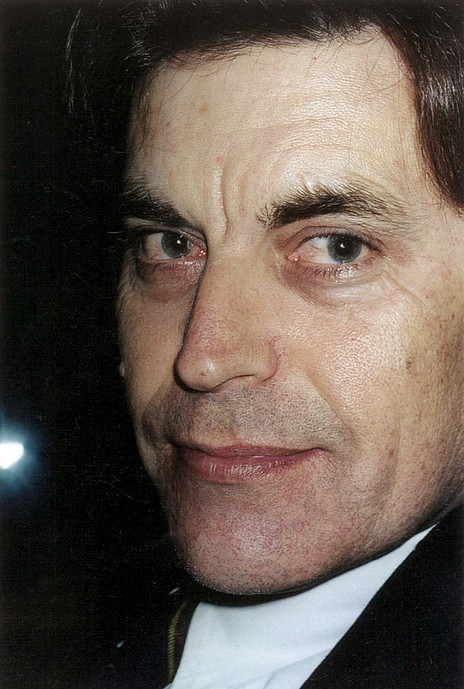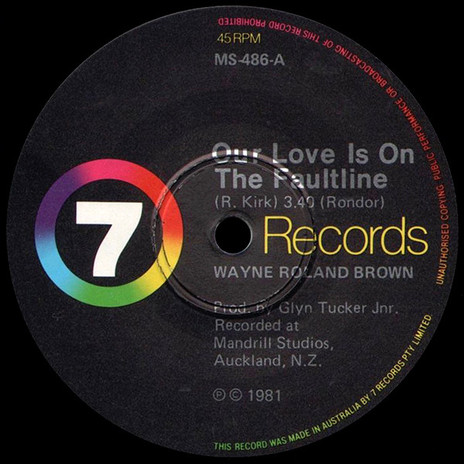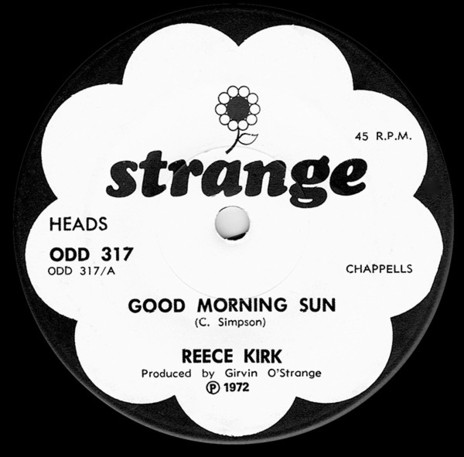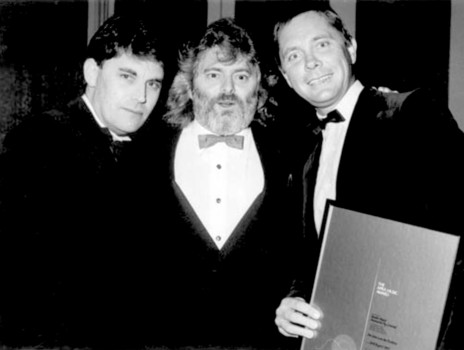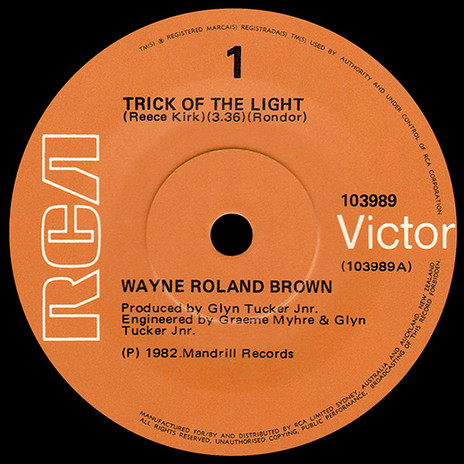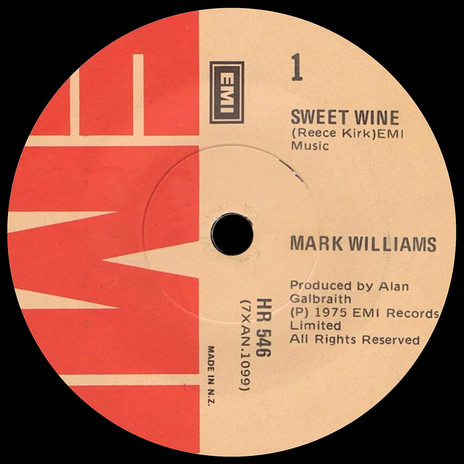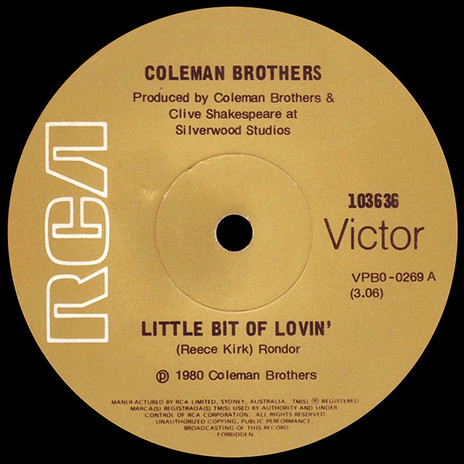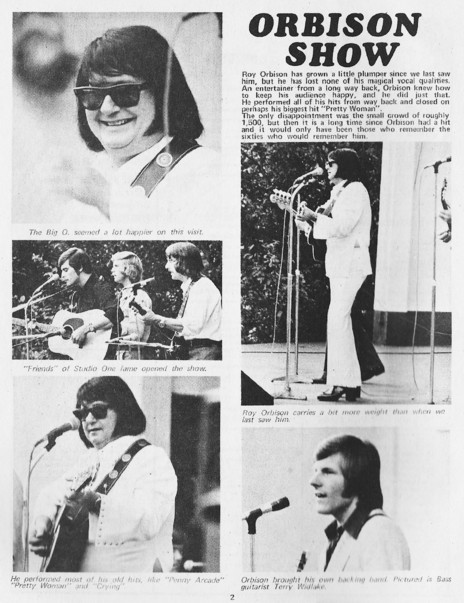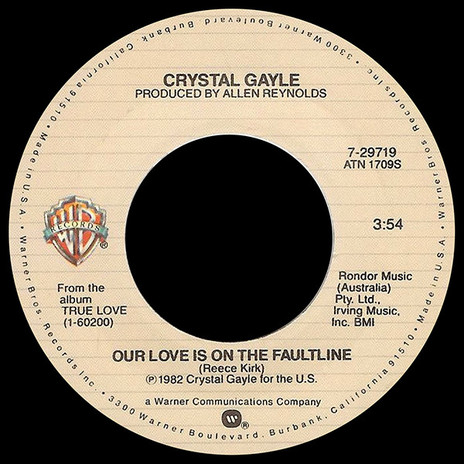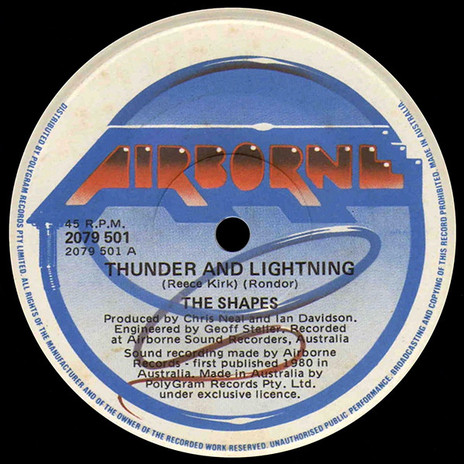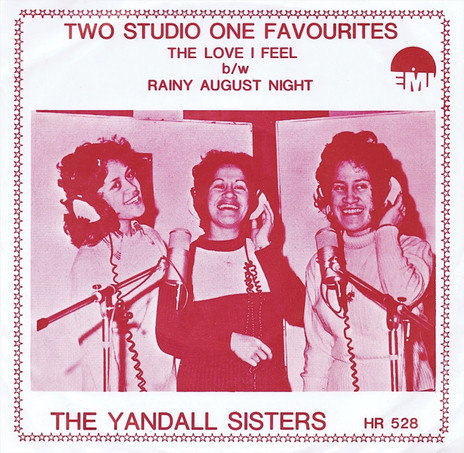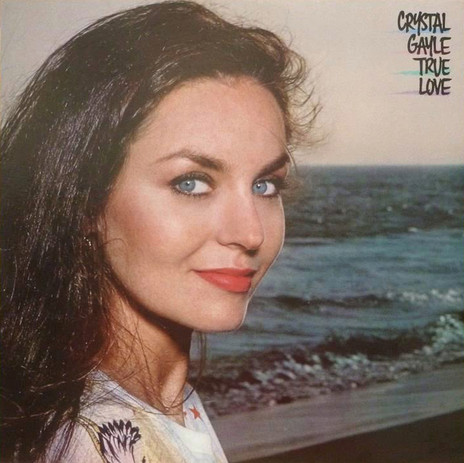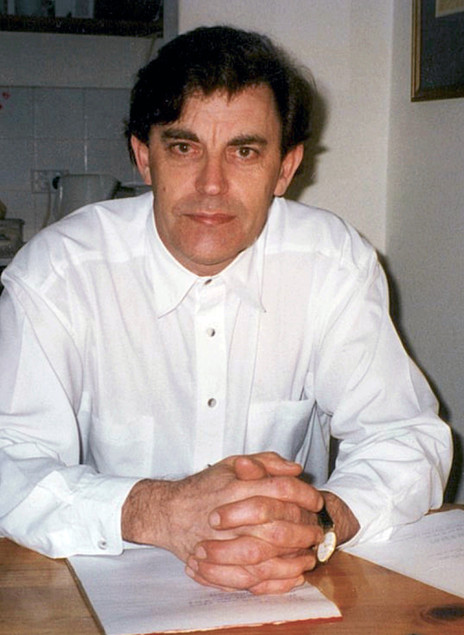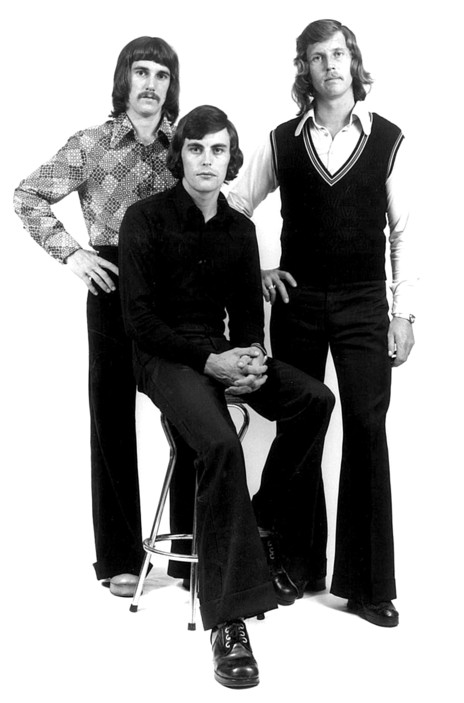Kirk met Edd Morris, also known as Girvan O’Strange and Eddie O’Strange, who produced his first single ‘Good Morning Sun’ backed with ‘Vincent’ at EMI’s Wellington studio. The single was released in 1972 on Morris’s Strange label and distributed by Allied International.
“‘Good Morning Sun’ was my first recording,” Kirk says. “It got me on to [TV show] Happen Inn. I’ll never forget that. Edd played a big part. I got involved with him and his circle of musicians and artists at the time, like Corben Simpson and Desna Sisarich.”
‘Good Morning Sun’ was written by Chris Simpson of British folk band Magna Carta, and it was Morris’s choice.
“I was only a greenhorn then,” says Kirk. “He would have said, ‘We’ll record this one.’”
Morris gave the song a big, classic pop production – embellished with trumpet played by BLERTA’s Geoff Murphy. “That was for the reason of getting on TV, because it was really hard to get on radio,” says Morris. “But if you got on TV, radio would follow.”
“Yes,” agrees Kirk, “and you had the contrast of the meek little voice and meek little guitar of Reece Kirk in the background. Edd was quirky like that. I owe an awful lot to Edd. He used to nurture all the local talent coming along. He used to bring me albums and say, ‘This is the way to write. Write like these guys.’ He was a really good influence.”
“I used to play ‘Vincent’ live and I loved the song,” Kirk says of the Don McLean song, which was given a spare, guitar-and-vocal treatment on the B-side of the single.
“‘Vincent’ wasn’t well known at the time we recorded it,” says Morris. “I think I’d given Reece a Don McLean album or two and said, ‘Listen to this guy. He’s on the same wavelength as you.’ It was always intended to be a B-side and when you’re paying for studio time it’s handy if you have something that’s quick and easy to do.
“Reece and I always got on really well. He was wanting to write good songs. I gave him a little help to polish his songs at that beginning stage with his writing – how to shape the songs, how to rearrange phrases, and how to add or take away syllables. Reece came up with the goods and all the songs needed were those fine, little tweaks to make them work in the studio.”
Studio One
Kirk then formed a three-piece band called Friends, to showcase the soft-rock songs he had written and honed.
“I met up with Steve Mackenzie [guitar and vocals] and Brad Murray [bass and vocals] in about 1973,” says Kirk, who handled lead vocals and also played guitar, left-handed.
Kirk’s trio called Friends showcased the soft-rock songs he had written.
“We played the Lion Tavern and the Tiger Tavern,” says Kirk: Wellington’s leading booze barns of the period. “Brad had a big acoustic upright bass. He’d lug that in and we’d sit in the corner and entertain everybody. We just worked up a sound. I loved that American sound.”
In 1974, Friends entered the Studio One New Faces competition and Kirk also entered three of his songs in the original-song part of the show.
Friends came third in New Faces, receiving positive comments from the judges, and Kirk’s song ‘Rainy August Night’ came fourth in the original-song competition.
“I wrote the song about two years before I entered Studio One,” Kirk says. “The Yandall Sisters performed it on the show, I think. Their version was good, with very lush instrumentation. I believe there was also another recording, by Beaver, but I’ve never heard it.”
The Yandall Sisters included ‘Rainy August Night’ on the B-side of their 1974 Top 20 single, ‘The Love I Feel’. Kirk’s song sounds a little reminiscent of Jimmy Webb’s compositions.
“Yes, it has a bit of that atmosphere,” Kirk says. “Jimmy Webb was the king. He was an iconic writer. I loved his stuff. It was just awesome.”
Singles on Polydor and EMI
The song that Friends performed in the Studio One final, Kirk’s ‘Old Man Temptation’, was released as a single in 1974, backed with ‘The Pine Cone Song’ – also penned by Kirk. The single, produced by Edd Morris, was released on the Polydor label.
“The thing about the recording of ‘Old Man Temptation’, and one of the songs on the Ebony album, was that the engineer Michael Grafton-Green and I – with the equipment we had in the studio at EMI – worked out how to get what we called an ‘overlapping’ reverb,” Morris says. “It was manual and it took four hands to operate the equipment.”
Friends released a second single the following year, on EMI. The A-side, ‘Melody Dreamer’, is a melodic soft-rock tune with an arrangement reminiscent of Bread, while the B-side, ‘No More Than Travellers’, is an accomplished folk-rock song. Both songs were written by Kirk and the recordings were again produced by Edd Morris.
‘Melody Dreamer’ has a single verse, with a bridge leading into a sweeping chorus, which is repeated until the song fades out.
“It was a lovely song with a rolling melody and an atmospheric aura,” Morris says. “I can imagine saying, ‘You don’t need another verse.’ It worked because it just rolls – emotionally, as much as anything.”
“We did a few of the TV shows that were around then,” Kirk says. “I think we did Spot On, in Dunedin.
“Radio Hauraki flew us up to Auckland, put us in a hotel and we worked there for a week or two. We did shows all round the North Shore, at beaches, off the back of a truck. We wound up doing a concert with some other artists at Albert Park. And we were the support act for Roy Orbison at the Bowl of Brooklands in New Plymouth [15 February 1975]. He had an extraordinary band.
“Soon after that, we broke up. Steve wanted to form his own group, with Brad, and do his own thing. So we parted company. Steve is a very good guitarist and a great harmony singer. I always loved his voice. In many ways, we were meant to part.”
MacKenzie went on to form progressive rock band Airlord with Murray, recording an album, Clockwork Revenge, in Australia in 1977.
“After that, I worked live with Steve Voss, who was a very good guitarist,” Kirk says. “We did a few shows together, including a Buck-A-Head concert at the Wellington Town Hall. Then I moved to Northland [Hikurangi, just north of Whangarei] and just continued to write.”
Sweet Wine
“I wrote ‘Sweet Wine’ for Mark Williams, in 1975,” Kirk says.
Williams included ‘Sweet Wine’ on his second album, Sweet Trials. It was the album’s first single, reaching No.7 on the New Zealand singles chart, in December 1975.
“I really liked the way he treated it – just the way I wrote it,” Kirk says of the song, which was nominated for the 1975 APRA Silver Scroll. “It had a nice, soul feel to it. And Alan Galbraith did a good job on production.”
“ ‘Sweet Wine’ is one of my favourites ... such a good, soulful feeling.”
“After Mark’s initial success, we wanted to find a more original approach to what we were doing,” says producer Alan Galbraith, who had also produced Kirk’s ‘Rainy August Night’ for The Yandall Sisters. “After Mark and I started writing songs together, we decided to look further afield and ask other local writers for new material for a follow-up album. One of the first we approached was Reece, who gave us ‘Sweet Wine’.
“The inspiration for the final arrangement and production came to us from Rod Stewart’s work with The Faces – a kind of sloppy British swagger. It also owed a bit to the no-nonsense, straight ahead style of the US soul studios like Muscle Shoals. But at the end of the day, it was just a bloody good song! EMI A&R head Bruce Ward also thought so and picked it as the single.”
Off to Australia
“At that point, I just wanted to expand and move,” Kirk says. “I’d done my run in New Zealand, doing the same old, same old, so I moved to Australia in 1976.
Kirk had met singer Wayne Roland Brown in Wellington.
“Wayne was also playing the bars around Wellington and we got to know each other,” says Kirk. “Wayne came to Australia and he was working for the Queensland Arts Council, so he was doing all the schools in the outback. He also used to come to Northland and stay with me. He said, ‘You should come to Aussie and try your luck over the ditch.’
“Eventually, I made up my mind to do that anyway, so we hopped on a plane and came to Sydney. Wayne and I kept up our association all along, because he needed material for his albums. At that stage, he was really only learning to write.”
Brown included two of Kirk’s songs, ‘A Little Bit Of Lovin’’ and ‘Rosey White’, on his 1980 album, Stealer Of Hearts.
“Ray Hall of Good Thyme Records took me under his wing when I got here,” Kirk says. “He got me a few gigs in bars and clubs, and we also wrote a whole lot of stuff together. Then Ray and I just drifted apart. I just wanted to work alone and put my own things together.”
Two of the songs Kirk wrote with Hall, ‘Skies Of Blue’ and ‘Chasing Time’, were included on a 1982 compilation album Love Speaks Louder Than Words, released by Hall to raise awareness of International Year of the Disabled Person and to celebrate the 25th anniversary of Guide Dogs for the Blind.
“I scored a songwriting contract with Rondor Music,” Kirk says. “John Bromell was the director of Rondor Music, here in Sydney. He signed me up, because he liked the material I was writing at the time. I was reasonably good live and a lot of the demos of my songs were better than the versions that have been done by other artists. But I was never good enough to be a recording artist per se. I realised that early on, so I was able to concentrate on the writing.
“I write mainly on guitar. That’s how I’ve written all my life. I just love the guitar, as an instrument. It’s just so accessible and you can take it anywhere.”
Faultline
Wayne Roland Brown included three of Kirk’s songs on his 1981 album, Fools And Pretenders.
“Ever since I came to Australia, Wayne kept coming down to Sydney and I was supplying him with songs for his albums,” Kirk says. “He came down in 1980 and he was planning to record an album in Auckland, at Mandrill, and he needed material. I provided him with a couple of songs and my future wife said, ‘Why don’t you give him ‘Our Love Is On The Faultline’?’ I’d been playing that around the clubs for about a year and a half, but I almost omitted it. So I put it on the tape and he took it away to New Zealand. He recorded that and a couple of others – ‘Don’t Lie To Me Laina’ and ‘Fools And Pretenders’.
“Wayne had some very fine musicians working with him at Mandrill, which was Glyn Tucker’s studio, and it was a good album. He rang me from Auckland and said, ‘Listen to this. We’ve just recorded ‘Our Love Is On The Faultline’,’ and it sounded great.
“When he came back, he brought it in, and I rang my publisher and said, ‘We’ve got what sounds like a hit, here.’ John Bromell had never heard the song. I only used to play it round the bars and clubs. He was really knocked out and about four weeks later they sent me to Los Angeles to write. That song got me into LA.
“I ended up writing at Almo/Irving’s studios in Hollywood, in one of my hero’s writing rooms – Paul Williams, of all people. I loved his music. I was there for about two months and I wrote with a few other writers on the roster there, at A&M. I’d never really done any co-writing up until that point, but I secured contracts for one or two of the writers, on the strength of co-writing with them.
American country singer Crystal Gayle recorded Kirk’s ‘Our Love Is On The Faultline’ for her 1982 album True Love, which spent a year on the US country album chart, peaking at No.14 in January 1983. ‘Faultline’ was the opening track on the album’s first side and was released as the album’s second single.
“John Bromell had moved on to Warner Brothers, as managing director,” Kirk remembers. “Bob Aird took over at Rondor. As was the process in those days, they would make up the tapes and send them to the artists. I believe Crystal Gayle was touring Australia and Bob sent a tape to her of about 12 songs – I think ‘Faultline’ was the last song on the tape.
“Nashville’s a tough place. It’s difficult to get breaks. She picked up on the song and she really loved it. She identified with it. Singers have to identify with the lyrics of the song – a message they can relate to and know their audience can also relate to.”
Gayle’s ‘Faultline’ single entered the US country singles chart at No.43 on 9 April 1983 and reached No.1 nine weeks later, on 11 June.
‘Our Love Is On The Faultline’ was released just before the Coalinga earthquake in California
“It was a steady climber – it wasn’t rapid,” Kirk says. “It was probably also assisted, much to our luck, by the Coalinga earthquake in California, which happened at about that time [2 May 1983; magnitude 6.5]. The song was lingering at about No.20 and that just belted it right up to No.1. So we had a bit of assistance there, which was fortuitous. My main pride in that song going to No.1 in the States is that I was the first Kiwi to do it.”
‘Faultline’, which also took Gayle to No.1 on the Canadian country singles chart, took Kirk several years to write.
“I’d had this little idea going since Wellington,” Kirk recalls. “I was a locomotive assistant at New Zealand Railways after I left school. You always had the rhythm of the rails – it had a country-type feel. I always had a bit of the melody and I got more of the melody when I came to Australia. The idea was fermenting in my mind for a long time. It hung round for about a year after I’d been here in Australia and gradually the words came. Being a Wellingtonian, we were used to all the earthquakes – it was part of my psyche, anyway. The words fell into place. It took a while to write, but once I hit the chorus I knew I had a hit chorus.
“The title is vital. That’s the whole explanation of the song – it encapsulates the whole idea. Every line in a song should relate back to the title. My generation of writers inherited the traditions that had gone before, in putting songs together in their right structure. It’s all changed now – it’s a different world, altogether.”
Kirk’s lyrics to ‘Faultline’ drew on earthquake, weather and cooking metaphors.
“One line just led to another,” Kirk says. “It’s almost corny now, but, then, it just seemed to make sense. Every line just followed on. The metaphors were all inter-related. If I sat down to write it again, I’d probably change a few lines, but they seemed to work, anyway.
“The song was actually squabbled over. A couple of other big artists also wanted it. Ricky Nelson wanted to do it. That would have been great, because he would have made it a country rock song, with a sophisticated flavour. ‘Faultline’ would have been right up his alley. Glenn Shorrock [Little Rive Band] wanted to have a run with it, also, but he couldn’t because Crystal Gayle had a hold on it.”
Was ‘Faultline’ Kirk’s most financially rewarding composition?
“Yeah, absolutely,” Kirk says. “It made a lot of money. The cheques were rolling in – $50,000 here and $60,000 there. It sets you up really well – but they’re hard to come by!”
In fact, Crystal Gayle recorded another of Kirk’s songs, the catchy ‘The One You Love’, not long after ‘Faultline’.
“She recorded it up to a point, where it just had to go into the finishing stages,” Kirk says. “They were set to go with it, but her manager changed recording companies and it dropped off the shortlist of songs. They shifted house and we lost out. She also recorded ‘A Little Bit Of Lovin’’, which remained on hold in the can. I never got to hear that cut.”
US singer Peter Emmett recorded Kirk’s ‘Don’t Lie To Me Laina’ for his 1983 album, The Peter Emmett Story, on MCA – giving the song an ’80s pop/rock treatment.
“Emmett’s version is much heavier than Wayne’s, but interesting nonetheless,” Kirk says. “From memory, it’s very choral. I was a bit shocked with the version.”
Wayne Roland Brown returned to Mandrill Studios to record his 1982 album, Trick Of The Light. Kirk wrote or had a hand in writing a majority of the tracks, including a co-write with Brown and another with Craig Karp, a staff writer with Rondor in Los Angeles.
ASCAP and APRA awards
Kirk travelled to Nashville in 1984 for the ASCAP (American Society of Composers, Authors, and Publishers) Country Music Awards – where he received a “top song” award for ‘Our Love Is On The Faultline’.
“I was standing alongside Hal David, that wonderful lyricist, on stage”
“I was standing alongside Hal David, that wonderful lyricist, on stage,” Kirk says. “I got to meet him. He was my hero because I just loved those songs by Bacharach and David.”
Kirk also received a special award for ‘Faultline’, presented by Ray Columbus, at the 1985 APRA Music Awards in Australia.
“While I was in Nashville for the ASCAP awards, I worked at Almo/Irving – the Nashville wing of Rondor International,” Kirk says. “I wrote with a few writers, notably Kent Robbins. He wrote hits for The Judds and other artists.”
Aussie associations
“When I returned to Australia, I got involved with Garth Porter [New Zealand-born keyboard player of Sherbet],” Kirk says. “Garth chased my tail. He was moving out of pop music then and looking for a new career. We linked up and I led him in a country direction. We wrote 20 or 30 songs together. Not a great deal happened to them, because things were beginning to change.
“Lee Kernaghan [Australian country artist] contacted me. I helped him with his songs in a couple of sessions we had, and I put him on to Garth, because Garth was beginning to produce country acts. That turned out to be a fruitful union.
“I worked with Michael Wade, the musical director of Jesus Christ Superstar, and we wrote a lot of stuff in the mid-80s, before I went back to writing solo again. I co-wrote ‘Time Is Not Mine’ with Mike for the rock opera Rasputin, which ran a season here in Sydney in 1987 at the State Theatre, with Marc Hunter [Dragon vocalist] in the lead role – replacing Jon English part way through the season.
“I wrote a lot of songs with Trevor White [who had been in Jesus Christ Superstar]. We did a lot of production and we built a studio.
“I worked with lots of people here and did a lot of writing for Australian artists. I picked up a lot of covers – nothing spectacular. Then I went back to Nashville in about 1986–87, after my marriage broke up, and did some more writing.
“When I came home, I went off the boil for a while. I stopped writing for quite a few years.
“In the early 90s, I worked with a lot of people. I worked with Louis Shelton, briefly. He was a fantastic guitarist. He played on ‘Last Train To Clarksville’ and hundreds of other hits. He played sessions for Seals and Crofts, Lionel Richie and Neil Diamond. He came to Australia and set up his own studio here.
“I’ve written a lot of very good songs that never got recorded. The way things were being done was changing. It’s a young people’s industry, so you get superseded unless you keep on doing all the same old things.”
Kiwi connections
Over the years, Kirk co-wrote a number of songs with New Zealander Mike Harvey, including a rugby song, ‘The Game Of Our Lives’, which was included on a 2011 New Zealand album entitled Rucks, Tries & Choruses. John Rowles sang the vocal.
“I’m particularly fond of ‘Open Season On My Heart’,” Kirk says of an elegant piano ballad he co-wrote with Harvey.
“John Rowles rang me in the ’90s and said, ‘Can you write me a really good love song?’” says Kirk. “I sat down and wrote ‘Me Loving You Loving Me’, which he recorded. He did a lovely version. I’ve always loved his voice. He was my hero, when I was in high school. It was easy to write them, because I know all about John.”
Kirk penned six songs on John Rowles’ 2014 album The Greatest Song Of All, including ‘The Singer’, which had also been recorded by Australian country singer Arthur Blanch.
“Arthur is an icon,” Kirk says. “He’s in his eighties now. He called me, looking for material, in the early ’90s. I provided a few things. He recorded ‘The Singer’ for me. He also did a cover of a song called ‘With Every Breath In My Body’ – which he shortened to ‘With Every Breath’, and that went to No.6 on the Australian country charts. I thought he did a nice recording of that.”
Favourite songs and reflections
Having spent decades mastering his craft, Kirk teamed up with Australian country writer Allan Caswell, of ‘On The Inside’ fame, to pass on their songwriting knowledge.
“Alan and I wrote a few things together back in the late ’80s. We conducted workshops for young, aspiring songwriters, around 2006–08.”
“Funnily enough, ‘Faultline’ isn’t really one of my favourites ... It’s the one that did the business.”
“Funnily enough, ‘Faultline’ isn’t really one of my favourites – oddly, when I look back on it. It’s the one that did the business. ‘Sweet Wine’ is one of my favourites. I just love that. I reckon that could be a hit any time. It’s just got such a good, soulful feeling. Being an old romantic, I love ‘Me Loving You Loving Me’. ‘Melody Dreamer’ is also one of my favourite songs.”
Kirk has catalogues of songs with publishers BMG and Universal Music.
“All in all, if I include co-writes, I would say I’ve probably written about 350 songs or more,” Kirk says. “But that isn’t a lot when you consider some writers have written 800, 900 or 1,000 songs. I don’t know where they get the energy!
“I’m still writing a little bit. We just plug them into the publishers and keep our fingers crossed. It was never easy, but now it’s even tougher to shift things. One reason most of the writers from my generation didn’t go on to kick more goals was ‘digital disruption.’ Apart from the fact that it’s pretty much a young people’s business, you no longer have to master a craft in order to write a decent song. Boy, I wish we’d had those downloading and sampling tools way back then!”
